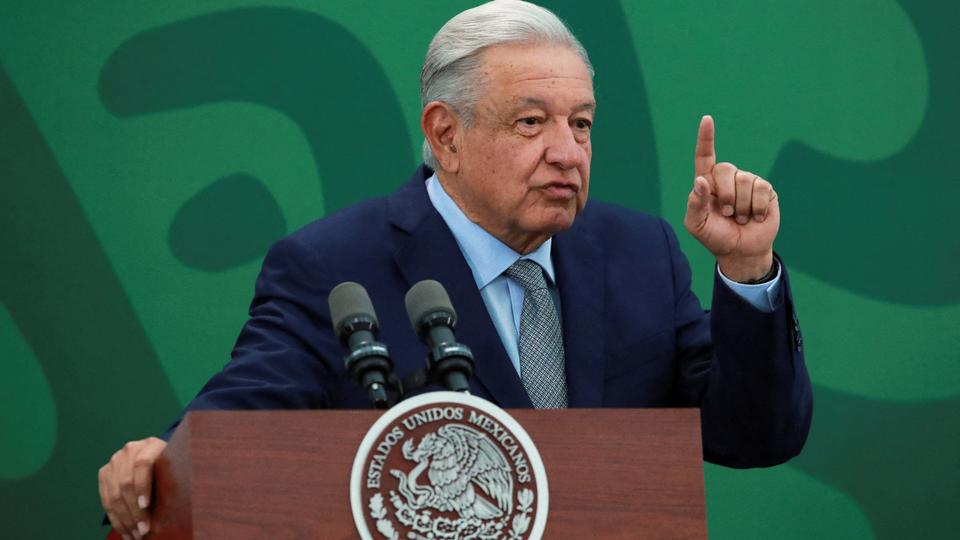Mexico’s president has said that his country does not produce or consume fentanyl, and that US should use family values to fight the addiction.
President Andres Manuel Lopez Obrador depicted the synthetic opioid epidemic largely as a US problem as he discussed fentanyl and arms trafficking in a meeting on Thursday with US Homeland Security Adviser Elizabeth Sherwood-Randall.
“Here, we do not produce fentanyl, and we do not have consumption of fentanyl,” Lopez Obrador said. “Why don’t they [the United States] take care of their problem of social decay?”
The Mexican president went on to recite a list of reasons why he said Americans were turning to fentanyl, including single-parent families, and parents who kick grown children out of their houses or send elderly relatives to old-age homes “and visit them once a year.”
Lopez Obrador also said on Twitter the two sides talked about US President Joe Biden’s “decision to respect [Mexico’s] sovereignty.”
Some Republican lawmakers have called on the US military to intervene and attack drug labs in Mexico after two Americans were killed last week in Mexico’s northern state of Tamaulipas.
Fentanyl has been blamed for about 70,000 opioid deaths per year in the United States.
‘The president is lying’
The Mexican president’s statement contrasted sharply with US Ambassador Ken Salazar’s statement on Twitter on Thursday that a meeting between Sherwood-Randall and Mexico’s attorney general was meant “to enhance security cooperation and fight against the scourge of fentanyl to better protect our two nations.”
In February, the Mexican army announced it has seized more than a half million fentanyl pills in what it called the largest synthetic drug lab found to date.
The army said the outdoor lab was discovered in Culiacan, the capital of Sinaloa state.
In the same city in 2021, the army raided a lab that it said probably made about 70 million of the blue fentanyl pills every month for the Sinaloa cartel.
“The president is lying,” said Mexican security analyst David Saucedo. “The Mexican cartels, above all the CJNG [Jalisco New Generation Cartel] and the Sinaloa Cartel have learned to manufacture it.”
“They themselves buy the precursor chemicals, set up laboratories to produce fentanyl and distribute it in cities in the United States and sell it,” Saucedo said.
“Little by little they have begun to build a monopoly on fentanyl, because the Mexican cartels are present along the whole chain of production and sales.”
While it is true that fentanyl consumption appears to remain low in Mexico and largely confined to northern border areas, that may be because the Mexican government is so bad at detecting it.
A 2019 study in the border city of Tijuana showed that 93 percent of samples of methamphetamines and heroin there contained some fentanyl.
READ MORE:
Record-breaking drug seizures point to pandemic narcotics boom
Republicans are ‘inhuman and interventionist’
On Wednesday, US Senator Lindsey Graham held a news conference, saying he wanted “to unleash the fury and might of the US against these cartels.”
“The second step that we will be engaging in is give the military the authority to go after these organisations wherever they exist,” Graham said.
“Not to invade Mexico. Not to shoot Mexican airplanes down. But to destroy drug labs that are poisoning Americans.”
Lopez Obrador said Mexico would not accept such threats, calling them “an insult to Mexico and a lack of respect for our independence and sovereignty.”
Lopez threatened to start a campaign in the United States, asking Mexicans and Hispanics who live there not to vote for Republicans.
“We are going to issue a call not to vote for that party, because they are inhuman and interventionist,” Lopez Obrador said.
In the ads launched in November, the Mexican government used videos of homeless people and open-air drug users in Philadelphia’s embattled Kensington neighbourhood to try to scare young people away from drugs.
READ MORE:
Multibillion-dollar settlement expected in US opioid crisis cases




















































Be First to Comment